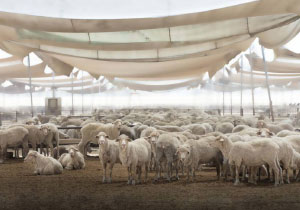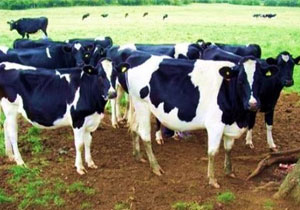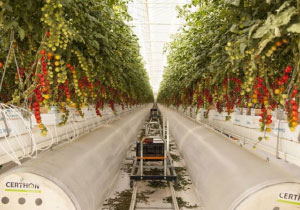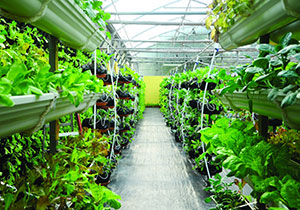The food gap in the country narrowed thanks to the growth of livestock numbers by 8% last year, while Abu Dhabi accounted for 70% of the total livestock, according to estimates by the Ministry of Climate Change and Environment.
Statistics indicate that the number of herds of goats and sheep in the country has so far reached about 5 million heads, in addition to about 450 thousand heads of camels.

According to the Federal Center for Competitiveness and Statistics, the number of head of livestock in the country in 2020 reached 5054462 head, distributed among 2054572 head of sheep, or 40.6 percent, in addition to 2399264 head of goats, or 47.4%, in addition to 103,102 head of cows and 497,524 head of camels. .
Abu Dhabi accounted for 70% of the total head of cattle in the country with 35,15281 head of cattle, followed by Ras Al Khaimah with 457,893 or 9%, Fujairah with 405,561 heads or 8%, Sharjah with 331,877 heads of cattle, Dubai with 1,99637 heads, Umm Al Quwain with 87,718 heads, and Ajman with 56,495 head of cattle.
The Ministry of Climate Change and Environment stated that the UAE possesses an important livestock wealth, which constitutes an important element for food security and the national economy alike.
The Ministry focuses its efforts on developing policies to preserve this wealth and organize the process of commercial exploitation of it to enhance its contribution to narrowing the food gap and the national economy, through the development and application of an integrated management strategy to protect and develop livestock, and raise biosecurity rates.
A plan for the Ministry aims to develop and implement programs to prevent and monitor animal diseases and epidemics, develop inspection and control mechanisms and standards on local farms and through border crossings, in addition to developing and strengthening information exchange mechanisms at the local and global levels.
The ministry pointed out that it aims to enhance the role of the private sector in achieving the goals of the state, and dealing with the most important challenges facing workers in the food-related sectors, to ensure the enhancement of food security and sustainability and to ensure the flexibility and continuity of local and external supply chains.
With regard to importing livestock from outside the country, the ministry has developed a system of services provided to the movement of food import in the country’s outlets that have been implemented during the last period, which includes providing an integrated package of electronic services related to approving, quarantine, examining and releasing consignments, increasing the absorptive capacity of quarantine centers, and enhancing the efficiency and number of cadres. The technician in the examination centers, to ensure the absorption of larger numbers of consignments imported to the country and the speedy completion of procedures for examination and release.
It is noteworthy that the total consignments of live animals that were entered into the local market during the period from the first of January to the end of March of 2021 amounted to 284,265 head, compared to 232,662 head for the same period in 2020, an increase of approximately 22%.
As for the support provided to breeders, the Ministry provides free veterinary services to livestock breeders through its 20 veterinary clinics at the state level, including treatment, immunization and counseling services, to ensure the promotion of animal health and animal production.
The Ministry implements campaigns throughout the year to immunize against the most important animal diseases with an economic impact, and provide these services through a specialized staff with experience and competence that includes more than 700 veterinarians affiliated with the Ministry and all government agencies concerned with the sector, including 324 doctors in the field of animal health and 398 doctors in the field of Food Safety.
Reda Al Bawardi - Abu Dhabi









